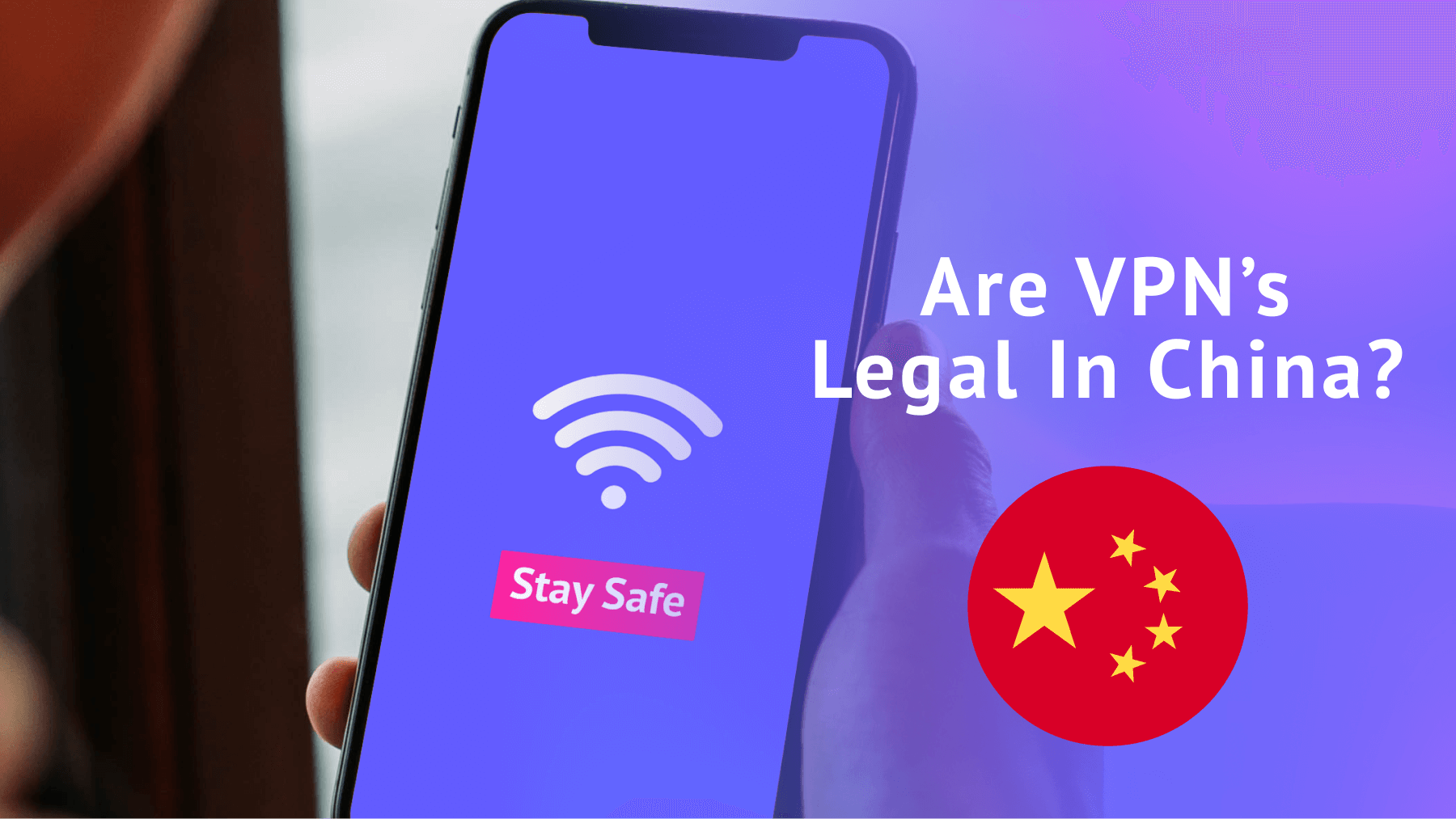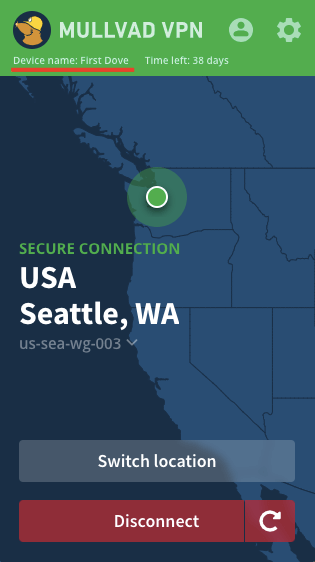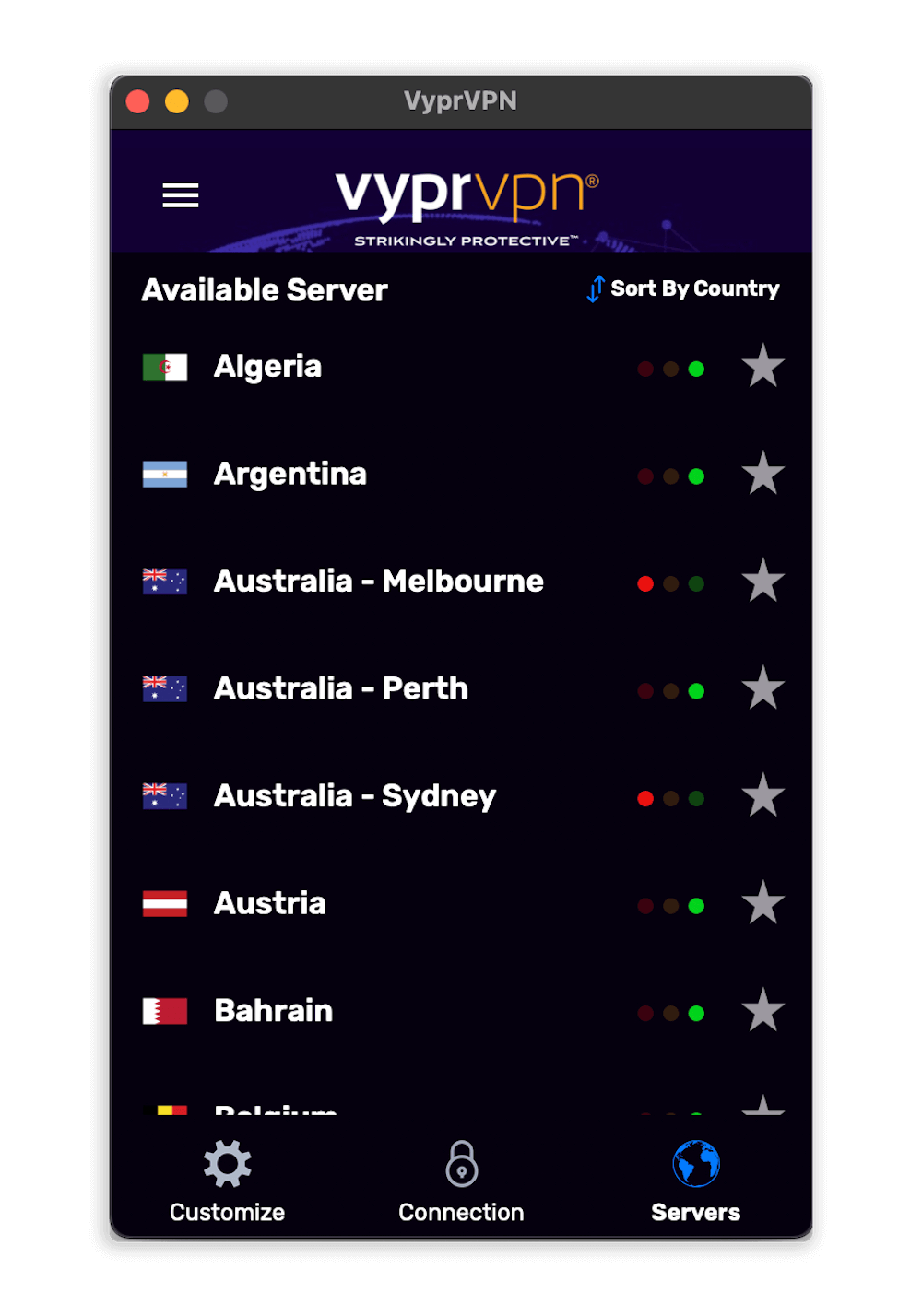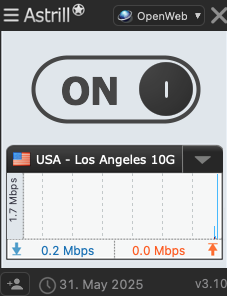
Are VPNs Legal in China in 2025?
- Table of Contents
- Are VPNs Legal in China?
- What Is the Great Firewall of China?
- What Does the Great Firewall of China Mean for VPN Service Providers?
- What Does the Great Firewall of China Mean for VPN Users?
- Should You Still Use VPNs in China?
- Which VPNs Work in China?
- DIY Alternatives
- What Is the Best VPN to Use in China?
- Conclusion
- FAQ: VPN China
Quick Summary: Are VPNs legal in China?
The Chinese government, fearing the power of virtual private networks (VPNs) to fight back against online censorship and surveillance, allows only a few VPN providers and blocks all others. Mullvad is my top VPN recommendation for getting around the Great Firewall.
Whether you’re a foreigner planning a visit to China or a Chinese national desperate for a glimpse outside the government-imposed internet bubble, having one of the best VPNs could save your life. With a government openly hostile to free exchange, though, it’s reasonable to ask yourself, “Are VPNs legal in China?”
The Chinese Communist Party (CCP) knows VPNs can get citizens around the Great Firewall to read prohibited content on websites from the outside world — but Chinese businesses also need VPNs to operate. Chairman Xi’s solution is to keep VPNs just this side of legal for business use while making them heinously inconvenient to actually use.
In this article, I’ll give you a comprehensive account of the legal status of VPNs in China, and explain how to up your chances of making one work while you’re there. If you already know the score, skip directly to our article on the best China VPNs.
Are VPNs Legal in China?
Yes, VPNs are legal in China in the sense that you won’t be arrested for using one (unless you use the VPN to commit a separate crime). However, that doesn’t mean you’ll have an easy time connecting to your favorite VPN service.
China recognizes that it can’t ban VPNs completely, since a lot of its businesses rely on them for remote access. The government’s solution is to heavily restrict VPNs so only licensed businesses can use them. Selling a VPN without a license counts as running an illegal business, which is a criminal offense.
I haven’t heard of any Chinese citizens being prosecuted for simply using a VPN without government approval, and I suspect the Party wouldn’t keep such an arrest secret. However, even though using a VPN in China is technically legal, it can still be a major inconvenience.
At best, you won’t be able to reach the VPN’s homepage to download the app. At worst, there have been cases of police shutting down a citizen’s phone service until they surrender their phone to have their VPN apps deleted. It’s also fair to assume that the few approved VPN providers are gathering data on your internet traffic and sharing it with police.
What Is the Great Firewall of China?
The Great Firewall of China is an unofficial name for the aggregated set of censorship technologies the Chinese government uses to censor anything on the internet that it doesn’t like. It began in 1998 with the Golden Shield project, a content filter implemented to suppress mass protests like those staged by the Falun Gong sect.
In the 27 years since, the Golden Shield has controlled the narrative about the SARS and COVID-19 outbreaks, clamped down on public opinion about the 2008 Beijing Olympics, censored mentions of persecuted Uyghurs in the Xinjiang region and spent ludicrous amounts of money to obliterate any connection between Xi Jinping and Winnie the Pooh.
While some parts of the Great Firewall focus on censorship, other technologies track user activities on apps and Chinese internet service providers. The regime also blocks access to most of the world’s most popular apps, replacing them with Chinese alternatives — such as Baidu for Google, WeChat for WhatsApp, Weibo for X (formerly Twitter) and so on.
In summary, the Great Firewall is enormous, technically sophisticated and approximately eight gazillion times more expensive than hiring a decent therapist for Xi. Next, I’ll explain what any of this has to do with VPN services.
What Does the Great Firewall of China Mean for VPN Service Providers?
Technology in the Great Firewall is capable of detecting and blocking any communication on a VPN protocol. It doesn’t have to play Whac-A-Mole with IP addresses like Netflix does. Through deep packet inspection, the Firewall can catch and block any VPN traffic that doesn’t conceal all traces of VPN protocols from its metadata.
With such power, you might wonder why the CCP hasn’t made all VPNs outright illegal. To reiterate, people in China regularly use VPNs for both work and pleasure — including high-level Party officials and businesses like hotels that cater directly to foreigners.
Instead of banning VPNs, China allows the use of approved VPN providers only. The government has forced Apple to remove non-approved VPNs from its app store, and it has blocked the Google Play store altogether.
Nonetheless, some outside VPN providers do still manage to work in China, including Mullvad and VyprVPN — though it’s very hard to know which VPNs are currently working without constant testing on the ground. NordVPN is my favorite VPN, but its record in China is spotty, so I can’t fully recommend it there.
Several VPNs, such as CyberGhost and Private Internet Access, even provide server locations in Chinese territory, though these are almost always virtual — i.e., really located somewhere else.
What Does the Great Firewall of China Mean for VPN Users?
VPNs are still available as a chink in the Great Firewall’s armor as long as China remains reluctant to banning them outright. Citizens and foreigners alike can use a VPN to move their virtual IP address outside China to access the global internet. There’s even a word for it, fanqiang, which translates to “climbing over the wall.”
While you’re enjoying some good old-fashioned fanqiang, your VPN is also keeping you safe from the government surveillance that’s pervasive in modern Chinese life. When you’re connected to a VPN server through an encrypted tunnel, police can’t connect your online activity to your real-life identity because they can’t see your real IP address.
Knowing how powerful VPNs are against the Great Firewall, China constantly works to make it harder to use any VPN service it hasn’t approved. In turn, providers continually swap IP addresses and build obfuscation protocols to stay ahead.
This back-and-forth means I can’t say for certain which VPNs will work in China. I can make reasonable guesses, but it can change in a matter of days as one side or the other gains an advantage. Take a look at Reddit if you don’t believe me.
Should You Still Use VPNs in China?
Though using a VPN is a royal pain in China, I still recommend doing it. The benefits of VPN protection apply everywhere, but they’re doubly important in China. Travelers can use them to stay in touch with home, while locals can use them to see over the government’s walls and get alternative perspectives.
Of course, you’ll also be able to use the internet without fear that anything you do will be used to build a profile on you. The one major difficulty is that the Great Firewall blocks most top VPN websites, so it can be hard to download a VPN unless you have one already.
Don’t worry, though — you still have options. If you’re just visiting, the simplest precaution is to download at least three VPN apps before entering China. Having several VPNs on your phone or laptop increases the chances that you’ll get through.
If you live in China, you can download VPN APKs onto an Android phone from a shadow Play store — but do not do this if you don’t have a way to scan files for viruses. Alternatively, you can email a VPN provider directly to get a manual configuration file. I go into more detail on all this in “DIY Alternatives.”
Which VPNs Work in China?
Right now, the VPNs that work best in China appear to be Mullvad, VyprVPN and Astrill. Of these three, Mullvad and VyprVPN are the two I wholly recommend, while Astrill is a decent backup VPN if you aren’t planning to do anything sensitive. The “Best VPNs for China” section below has more details.
Remember that anything I say in this section is subject to change. I can predict only that a certain VPN has a better or worse chance of working in China, and I can’t guarantee that any of them always will. It’s common for VPNs to briefly stop working around major news events in China, such as a Congress of the Communist Party meeting.
Free VPNs for China
If you’re dead-set on using free VPNs, then read my guide on the best free VPNs for China; hide.me is my top recommendation, but I believe you’ll have better success with one of these paid options. (Read the hide.me review.)
Does NordVPN Work in China?
Yes, NordVPN works in China, but only in some cases. It’s the best option to use outside China, with great speeds and obfuscated servers, but it isn’t consistent enough to be your primary option for bypassing the Great Firewall. Read the full NordVPN review.
Does ExpressVPN Work in China?
Yes, ExpressVPN sometimes works in China. However, as the VPN most often directly targeted by the Great Firewall, it’s less guaranteed to succeed than Mullvad or VyprVPN. Read the full ExpressVPN review.
Does Proton VPN Work in China?
Yes, Proton VPN often works in China, and its unlimited free plan makes it an ideal backup option. You can’t choose your server location on the free plan, but all the options are outside China. As you’ll see in my Proton VPN review, it’s one of the better free VPNs.
Does Atlas VPN Work in China?
No, Atlas VPN no longer exists — and when it did, it didn’t work reliably enough in China for me to recommend it. My Atlas VPN review covers it in more depth.
Does PureVPN Work in China?
Yes, PureVPN frequently works in China, but I don’t recommend it overall. As I explain in my PureVPN review, I don’t trust it to keep user information safe.
DIY Alternatives
If you find yourself in China without access to a VPN, you’re not out of luck. To start with, you can see if your favorite VPNs have mirror links to unblocked download pages. If you use Android, you can check for links to directly download VPN apps. Make sure to run a virus scan on any APK you download outside the Play store.
Another alternative is to manually set up your own VPN connection — we have a whole article on how to set up a VPN without a provider, but I’ll summarize it here. Note that manual connections are not unblockable — they’re just a potential solution for reaching blocked VPN websites to download the proper app.
OpenVPN China
To set up a manual OpenVPN connection in China, you’ll need an OpenVPN configuration file — a set of instructions that connects your router to a VPN server. The easiest way to get a configuration file is to contact a VPN provider and request one, but you can also download files from members of the OpenVPN forum community.
Once you have one or more .ovpn files that you’ve confirmed are safe and usable, you’ll also need to download the OpenVPN Connect interface, available for free on the OpenVPN website. Use OpenVPN Connect to import your .ovpn file, then turn its connection on through the main window.
WireGuard China
You’ll need to install the WireGuard software before you start, but it’s available for free from the WireGuard website. As with OpenVPN, you’ll have the easiest time if you find a source of WireGuard configuration files. Try contacting any VPN provider with which you have an account.
If you’d rather start entirely from scratch, you’ll need the IP address of any publicly accessible server and access to its command line (likely via SSH tunneling). Use the client and server command lines to generate a WireGuard key pair. Finally, use your WireGuard client to create a configuration file that uses your public server as a VPN node.
What Is the Best VPN to Use in China?
I’ve observed that the following VPN providers tend to have the best records in China. Take these entries as suggestions, not facts. The VPN situation in China changes by the day, so a certain service making this list doesn’t guarantee that it will work. It’s always good to have a few VPN options downloaded before you go.
1. Mullvad — Top VPN Recommendation for China

Mullvad is the best VPN I’d be willing to rely on in China. It’s high on my list of the best VPNs overall, with quite low worldwide latencies and uncrowded servers in Japan and Singapore. If it gets through the Firewall — which it does in much of the country, especially with Shadowsocks active — it’s a reliable VPN for a quick connection.
Mullvad comes with a no-questions-asked, 14-day money-back guarantee, perfect for covering your trip to China. I’ve also written a full Mullvad review that explores it in more detail.
- $5.30 per month (one-month plan)
2. VyprVPN — Best Budget VPN for China

VyprVPN‘s special attention to privacy makes it one of the best VPNs to use in China. It has four VPN protocols: WireGuard, IPsec, OpenVPN and its proprietary Chameleon protocol, which protects you with obfuscation without sacrificing speed. The Great Firewall doesn’t seem to have blocked any of its Asian servers yet, so you have a good chance of getting through on fast short-distance connections.
It’s even cheap at both the monthly and annual durations. My VyprVPN review has the whole story. For those who are interested, all subscriptions come with a 30-day refund period.
- $3 per month (two-year plan)
3. Astrill — Best Backup VPN for China

Astrill is a popular VPN for use in China, recommended for its ability to work even when other VPNs don’t. I can concur that it works in China, but I rarely recommend it outside that use case. Astrill VPN charges exorbitant fees for a mediocre VPN, and it saves a lot more information than it needs to, justifying this by claiming that everyone does it.
All Astrill sales are final — there’s no refund guarantee. You can get a seven-day free trial, but that’s it. We don’t have a full Astrill review yet, but I plan to dig deeper when I have time. For now, I recommend it in China only for non-sensitive online activities that you wouldn’t mind being logged.
- $12.50 per month (two-year plan)
Conclusion
China may ban VPN software intermittently, but I doubt it will ever make them illegal for good. That’ll happen only when China’s leaders no longer have any personal need for the outside internet — and I wouldn’t put money on that day ever coming. With the right VPN, anybody can climb over the Great Firewall of China.
Do you live in China, or have you been there recently? Have you managed to get past the internet censorship? Which VPN worked for you — or did you use another trick? Let me know in the comments so I can make sure I’m offering the best information possible. Thanks for reading.
FAQ: VPN China
Is a VPN Illegal in China?
It’s not illegal to use a VPN in China, but you may get in trouble for using a service the government hasn’t approved. Even then, you’re more likely to get your phone confiscated and wiped than to be fined or sent to jail.Can Foreigners Use a VPN in China?
Visitors to China are subject to the same restrictions as locals. Even so, it’s possible to use a VPN in China as long as you already had it on your device when you entered.What Is a VPN With China Server Options?
CyberGhost and Private Internet Access are the best VPNs with servers in China. Both providers’ China VPN servers are virtual, so you don’t have to worry about either one having a government backdoor installed.Does China Block VPNs?
Yes, many popular VPNs — like ExpressVPN or NordVPN — can be blocked by Chinese VPN restrictions.


Leave a Reply